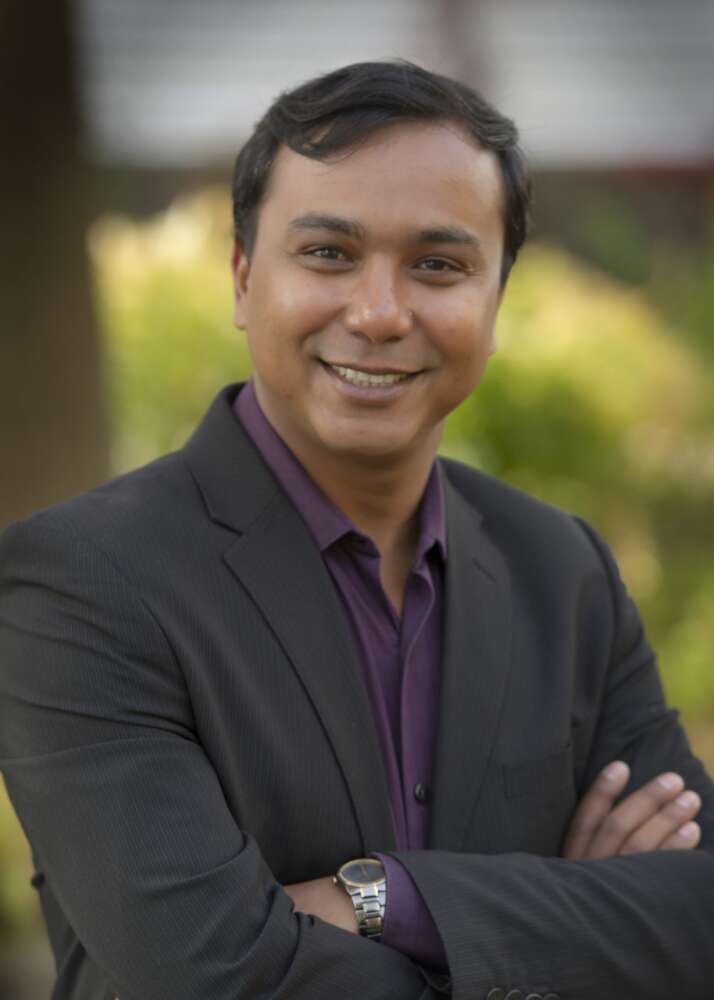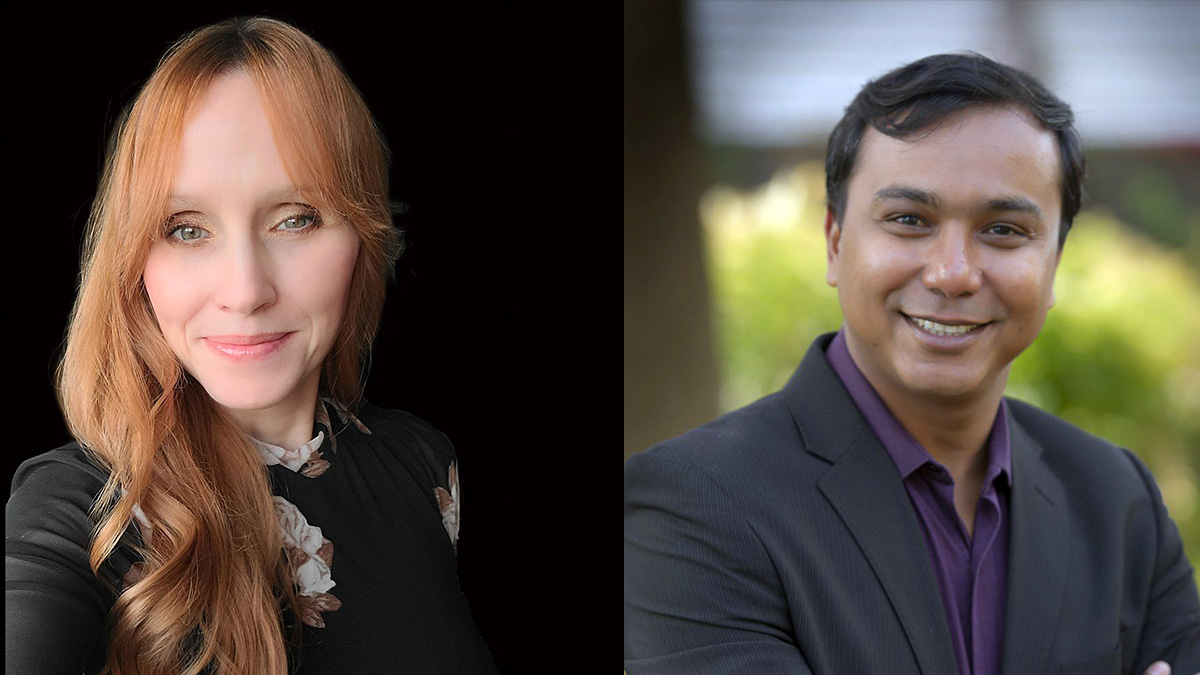Two University of Guelph professors have been named to the Royal Society of Canada (RSC) College of New Scholars, Artists and Scientists.
Dr. Melissa Perreault, Department of Biomedical Sciences, and Dr. Asim Biswas, School of Environmental Sciences, will join eight other U of G faculty members named to the prestigious group since its establishment in 2014.
This announcement names 51 new Members of the College as well as 89 new RSC Fellows at numerous universities and research institutions.
The College of New Scholars, Artists and Scientists is intended to bring together scholars “at a highly productive stage of their careers” to promote interdisciplinary interaction and understanding. Members are named for seven years.
“These prestigious appointments with the Royal Society of Canada are well-deserved recognition for Dr. Melissa Perreault and Dr. Asim Biswas and for their leading-edge research programs at the University of Guelph,” said Dr. Malcolm Campbell, vice-president (research).
“Their research is contributing to wider initiatives that will help us tackle pressing mental health challenges, enhance educational and research opportunities for Indigenous scholars and feed the world sustainably — all critical ways in which U of G is improving life.”

Dr. Melissa Perreault
Improving diagnosis and treatment of depression and other mental health disorders – especially in women – is the goal of Perreault’s research into developing biomarkers of sex-specific brain wave differences that she said have been historically overlooked by largely male-focused studies.
Perreault, who is also an adjunct professor in the Department of Integrative Biology, said animal models show male-female variations in cellular function and neurophysiological patterns that clinicians and drug makers need to account for in identifying at-risk individuals and treating these disorders.
Referring to deficiencies in current drug treatments for mental disorders, she said, “The goal of my research is to draw attention to the importance of inclusivity of both sex and gender in preclinical and clinical research to tailor therapies and treatments so they can be more efficacious.”
A member of the Métis Nation of Ontario, Perreault hopes her Royal Society connections will help advance initiatives to support Indigenous students and faculty in STEM (science, technology, engineering and mathematics).
“Numbers of Indigenous students are really low in STEM. I want to develop supports to help encourage entry and retention of Indigenous students into STEM programs,” she said.
At U of G, she will help to integrate Indigenous ways of knowing and learning (IWKL) into the science curriculum, has established an Indigenous mentorship program in STEM, and advocates for experiential learning and research opportunities for Indigenous students.
Perreault serves as an Indigenous Knowledge Holder for the Canadian Brain Research Strategy, and has been a member of a Tri-Agency committee choosing members of a reference group to review Indigenous grant applications.

Dr. Asim Biswas
Biswas develops tools including soil sensors, data management and soil maps to help farmers apply water and fertilizers more precisely on their fields.
Working with a Manitoba company, he developed a SoilReader device that allows farmers to analyze nutrients in a soil sample to determine how much fertilizer to apply in different parts of a field. Along with the Ontario Ministry of Agriculture, Food and Rural Affairs, he launched a free, online service for farmers to obtain detailed soil maps on their cellphones.
A key aspect of so-called precision agriculture, his work allows farmers to pinpoint how much water or fertilizer is needed in different locations around their acreage. That saves time, money and resources for producers and helps protect the environment by avoiding overuse of nutrients that may pollute waterways.
“The farmer can grow plants but not have nutrients wash into water and create problems with downstream water quality,” said Biswas, who belongs to U of G’s Food from Thought project intended to find sustainable ways to grow more food.
He has also worked with numerous partners abroad to provide cellphone-based tools to smallholder farmers in Africa and Southeast Asia.
Like a doctor diagnosing a patient before prescribing medication, he said, these technologies are intended to provide information to help farmers look after their soil.
“My research program is intended to help better manage natural resources like soil and water and grow crops so we can feed everybody without affecting the environment. We need to know what is going on in soil systems for better management.”
An award-winning researcher, Biswas said becoming a member of the RSC College “is the highest achievement I could attain at this point.” He added that the honour also highlights the scope and importance of U of G research: “It shows that University of Guelph researchers are contributing to national and international issues.”
Founded in 1882, the Royal Society of Canada is the country’s oldest and most prestigious scholarly organization.
